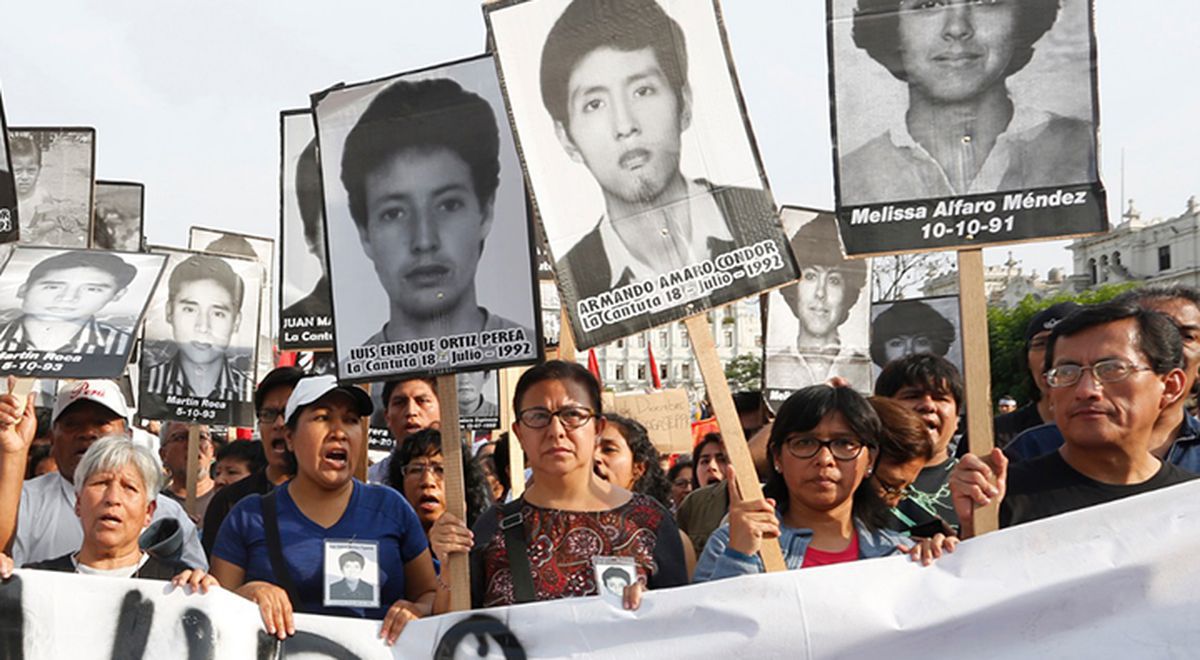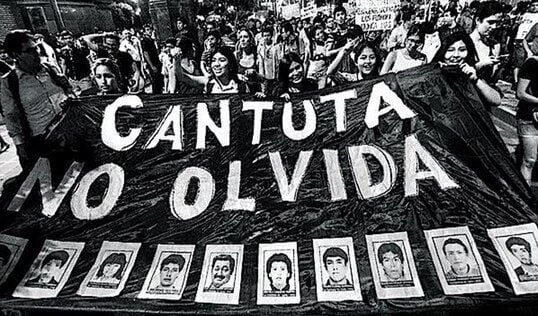
The decision of the Constitutional Court to repeal the nullity of the pardon to Alberto Fujimori has surprised a large part of the population, especially the relatives of those who were victims of enforced disappearances during the 1990s. After the decision was announced, President Pedro Castillo convened the group to a meeting at which the former Minister of Culture, Gisela Ortiz, being the sister of the late Luis Ortiz.
The former member of the Executive welcomed the president's gesture, but stressed that beyond the forms, the government should act in the face of the controversial ruling of the Constitutional Court. “The Executive must answer for its actions before the Inter-American Court of Human Rights beyond this illegal ruling”, this in relation to the pardon that Pedro Pablo Kuczynski awarded Alberto Fujimori in 2017 as the highest representative of that power of the state.
“The message that must be given as a State, as a government, must be strong and forceful with regard to the fight against impunity (...) Here are several actors who could do something else. The thing is to dare and not be afraid of Fujimorism and revenge that they always use,” added Ortiz in conversation with Exitosa radio.

The former Minister of Culture stressed that the president of the republic should not fear the Fujimorism that today celebrates the liberation of its leader. “Pedro Castillo should not be afraid of Fujimorism. I hope you're not afraid of him. That is why it is necessary that they be confronted politically from Congress, on a social and communicative level. All that narrative that Fujimorism has built, which is the saviors of Peru, the ones who ended terrorism, the only political option, is something that can be disrupted from the very exercise of good government,” he stressed.
WHO ARE THE MISSING PEOPLE OF LA CANTUTA?
In July 1992, during the government of Alberto Fujimori, members of the Colina group broke into the Enrique Guzmán y Valle National University (La Cantuta). During that intervention, a teacher and nine students were kidnapped, including Luis Ortiz, brother of the former Minister of Culture. They were transferred to the outskirts of the capital where they were killed and buried in clandestine graves that would be discovered years later.
Alberto Fujimori was even sentenced for qualified homicide in the aforementioned case as well as for the Barrios Altos massacre. The judiciary also found him guilty of the crime of aggravated kidnapping against journalists Gustavo Gorriti and Samuel Dyer. The sentence imposed consisted of 25 years of imprisonment, which was to end in February 2032; however, following the decision of the TC to reverse the annulment of the pardon, Fujimori is about to be released from prison.

“We don't understand the reasoning (of the TC) because we don't know it yet, however, we must say that it directly affects our right as relatives to justice when one of the main political responsible for the death and disappearance of our relatives is granted freedom,” Ortiz said shortly after the controversial decision of the court.
Bertila Lozano Torres, Dora Oyague Fierro, Luis Enrique Ortiz Perea, Armando Richard Amaro Condor, Robert Edgar Teodoro Espinoza, Heraclides Pablo Meza, Felipe Flores Chipana, Marcelino Rosales Cardenas, Juan Gabriel Mariños Figueroa, Hugo Muñoz Sánchez (professor) are the names of those who lost their lives at the hands of the group Hill behind the intervention in La Cantuta.
KEEP READING
Últimas Noticias
Debanhi Escobar: they secured the motel where she was found lifeless in a cistern
Members of the Specialized Prosecutor's Office in Nuevo León secured the Nueva Castilla Motel as part of the investigations into the case

The oldest person in the world died at the age of 119
Kane Tanaka lived in Japan. She was born six months earlier than George Orwell, the same year that the Wright brothers first flew, and Marie Curie became the first woman to win a Nobel Prize

Macabre find in CDMX: they left a body bagged and tied in a taxi
The body was left in the back seats of the car. It was covered with black bags and tied with industrial tape
The eagles of America will face Manchester City in a duel of legends. Here are the details
The top Mexican football champion will play a match with Pep Guardiola's squad in the Lone Star Cup

Why is it good to bring dogs out to know the world when they are puppies
A so-called protection against the spread of diseases threatens the integral development of dogs



